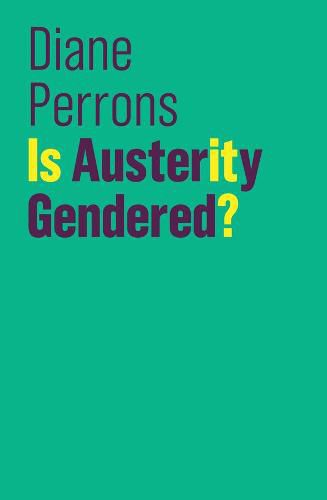Readings Newsletter
Become a Readings Member to make your shopping experience even easier.
Sign in or sign up for free!
You’re not far away from qualifying for FREE standard shipping within Australia
You’ve qualified for FREE standard shipping within Australia
The cart is loading…






Austerity has dominated the policy agenda in the past decade. Although it appeared to end with the COVID-19 pandemic, a return to harsh cutbacks in the future cannot be ruled out.
In this incisive analysis, Diane Perrons shows that while austerity policies have devastating effects on people’s lives, their gendered dynamics are particularly conspicuous: budget cuts have been overwhelmingly aimed at services used by women. She shows how the gender aspects of this economic and social catastrophe intersected with a range of other factors, making the experience of austerity very different for different groups - and highly unjust. Not only that, it undermined responses to COVID-19.
She finishes by critiquing the justifications for austerity policies and asks whether there are compelling alternatives that can re-invigorate economies and societies after the pandemic, and avoid a return to austerity. This compelling book will be essential reading for activists, policymakers and students of feminist political economy everywhere.
$9.00 standard shipping within Australia
FREE standard shipping within Australia for orders over $100.00
Express & International shipping calculated at checkout
Austerity has dominated the policy agenda in the past decade. Although it appeared to end with the COVID-19 pandemic, a return to harsh cutbacks in the future cannot be ruled out.
In this incisive analysis, Diane Perrons shows that while austerity policies have devastating effects on people’s lives, their gendered dynamics are particularly conspicuous: budget cuts have been overwhelmingly aimed at services used by women. She shows how the gender aspects of this economic and social catastrophe intersected with a range of other factors, making the experience of austerity very different for different groups - and highly unjust. Not only that, it undermined responses to COVID-19.
She finishes by critiquing the justifications for austerity policies and asks whether there are compelling alternatives that can re-invigorate economies and societies after the pandemic, and avoid a return to austerity. This compelling book will be essential reading for activists, policymakers and students of feminist political economy everywhere.